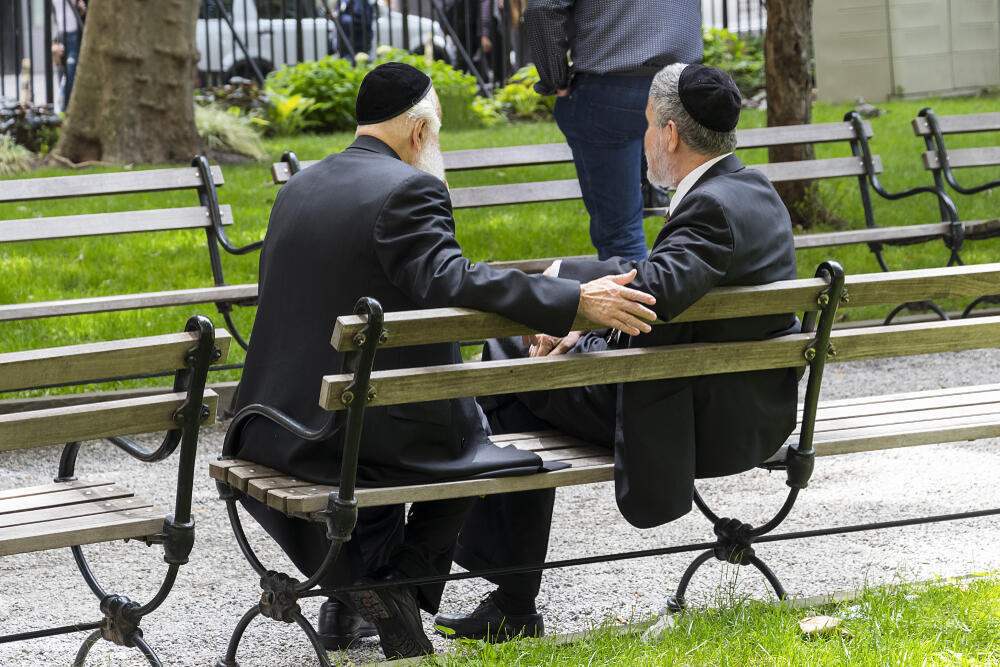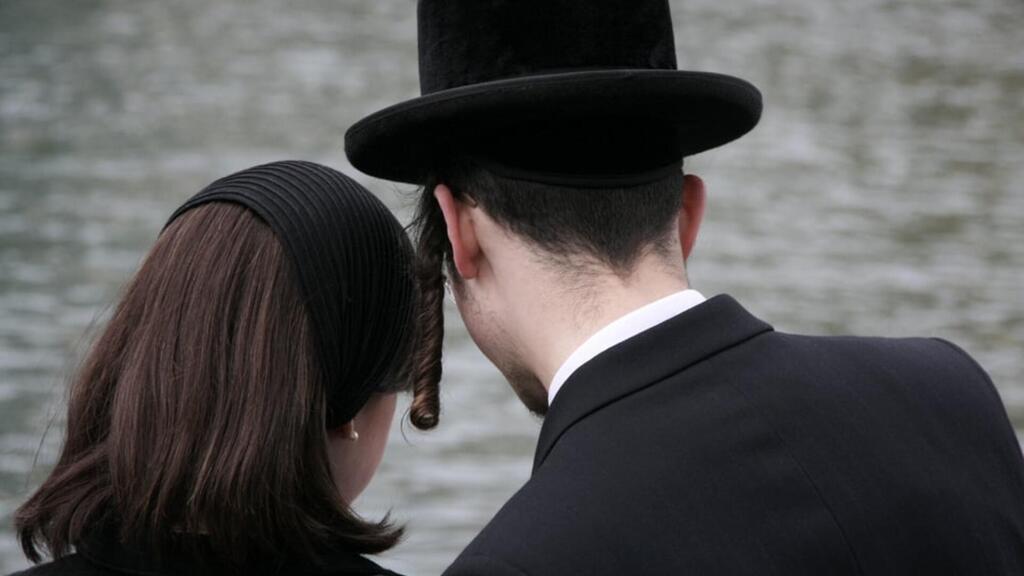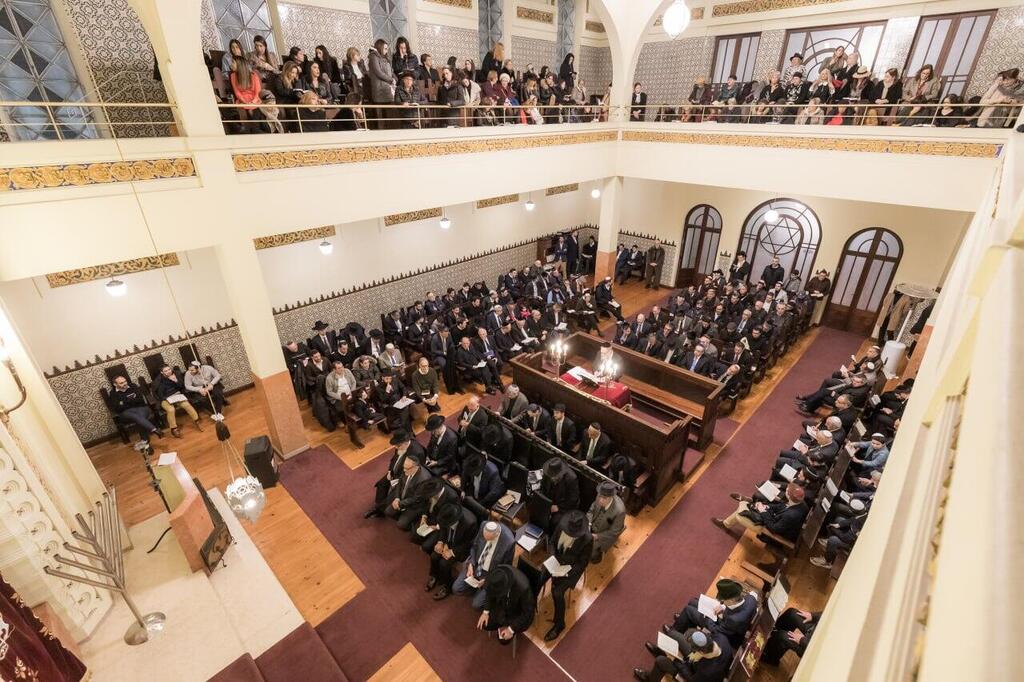A new study by the Orthodox Union (OU), the umbrella organization for Orthodox Jews in America, reveals that one-third of Orthodox single men and 45% of Orthodox single women feel "ostracized " and "dismissed" by their community for being single.
More stories:
Although most of them feel that people in their synagogue are friendly towards them, 30% of single men and 55% of single women said that they aren’t invited to community events because of their single status.
Some 80% of them said this negative attitude towards unmarried individuals is one of the central issues facing the community today, alongside acute problems such as unethical behavior among religious leaders, antisemitism, and the cost of living required to facilitate a Jewish lifestyle.
Most participants in the study agreed that communal attitudes and negative interactions with individual community members are the biggest challenges they face. “In the struggle of shidduchim, (matchmaking) there’s maybe 10%, that’s the lonely experience of looking for a spouse, but 90% of the rest of it, is the pain of feeling ostracized by the community,” explained Libby, a 27-year-old single woman quoted in the study.
Researchers say that many Orthodox Jewish singles feel entirely invisible in their traditional community, especially after the age of 25, and particularly within the synagogues. “Single community members say, ‘At work I sit at the head of a board and run presentations and everyone says I’m still so young, I have my whole life ahead of me, I’m professionally accomplished. Then I go to shul and people view me as a nebach (loser) because I’m not married.’”
'Sometimes we’re spoken to in very patronizing tones'
One of the study’s participants, 29-year-old Rachel, compared the situation to reading from the Torah. “I just think that this whole thing is looked on like a parsha, like a chapter. And sometimes we’re treated in a patronizing way. Not challenging our identity and not being made to feel shameful about how we’re handling it or that we’re being judged..is a huge struggle for me and probably for other people.”
Jake, 32, from suburban Los Angeles, said, “Somehow or another, the community has managed to convince the singles that if you’re not married by X-number, you’re a failure. I think a lot more people would be getting married if they felt better about themselves.”
Shira, a 29-year-old from suburban New York, said: “This is one of the most trying and embarrassing times in our life. We lose a sense of purpose and don’t really know why we are on this planet. There is no way to explain the thousands of times we are discounted, rejected, or overlooked while we try to find our own purpose and meaning in life. The combination is terrible and really can destroy anyone. We need to find a place in the religious world for single people and stop treating us like we are damaged goods that need help.”
Others described the frustrating experience when dealing with matchmakers, a common practice in the community in both the United States and Israel: “When I have asserted myself with matchmakers, they just completely write me off and will never set me up again,” Said 35-year-old Leora from New York.
Nattan, a 30-year-old Jewish single from Philadelphia, added: “I just felt like my description of what I wanted disappeared into the ether. No one is reading my profile. No one is reading the notes that I write to them... It makes me feel like I’m talking to the wall.”
“I would say to community leaders and community members: We do not want your unsolicited advice. We’re not interested in it. You don’t know what it’s like. You’re not in the trenches with us,” said 24-year-old Chevi from New York.
Rochel, a 27-year-old woman from New York, said that “The greatest problem with the shidduch crisis, other than the fact that some people are single, is that we lack a true identity. We lack a place in Jewish society. Our society is so much about, it’s so family-oriented and that’s beautiful. But where do we fit?”
No place for singles in the ultra-Orthodox community?
“When people talk about the ‘shidduch crisis’, they actually mean two completely different things, according to Rabbi Goldberger,” said Channah Cohen, a former applied researcher at the OU’s Center for Communal Research – who complied the study.
“One issue is the ‘crisis of process’, meaning how people date, for example, whether they have sufficient access to dates, do shadchanim work, is there an age-gap issue demographically that’s preventing some people from getting married? The other issue is the ‘crisis of experience’, which is a feeling among singles that as long as they’re unmarried, there’s no place for them within the Orthodox community,” she explained.
According to Cohen, this distinction is very important to take into account in a community that is attempting to aid others in their singlehood. “Often community leaders will acknowledge the difficulty of being single and feeling isolated and try to help single men and women by creating a WhatsApp group, for example, and sharing people’s profiles publicly. That’s trying to solve the crisis of experience via the crisis of process, which only exacerbates the former.”
She adds that others in the community often think that the only way to help singles is by trying to connect them with other people. “It doesn’t start there,” she said. “I believe the first responsibility of every single member of our Orthodox community is to welcome single men and women and to relate to them with basic etiquette and menschlechkeit. I would love it if everyone watching the panel gained an understanding of the crisis of process versus the crisis of experience, and realized the huge impact they can have on the shidduch crisis by doing small things, starting today.”
Cohen added that the study’s aim was to make the Jewish community realize why it is important to change the way it treats singles, using general guidelines offered and drafted by the community’s singles themselves.
The study included a 25-minute-long survey answered by over 2,300 single participants across the United States, which was distributed through eight major Orthodox dating platforms and websites. In addition to the survey, in-depth interviews were conducted with approximately 50 single individuals, 50 matchmakers, and community leaders.






